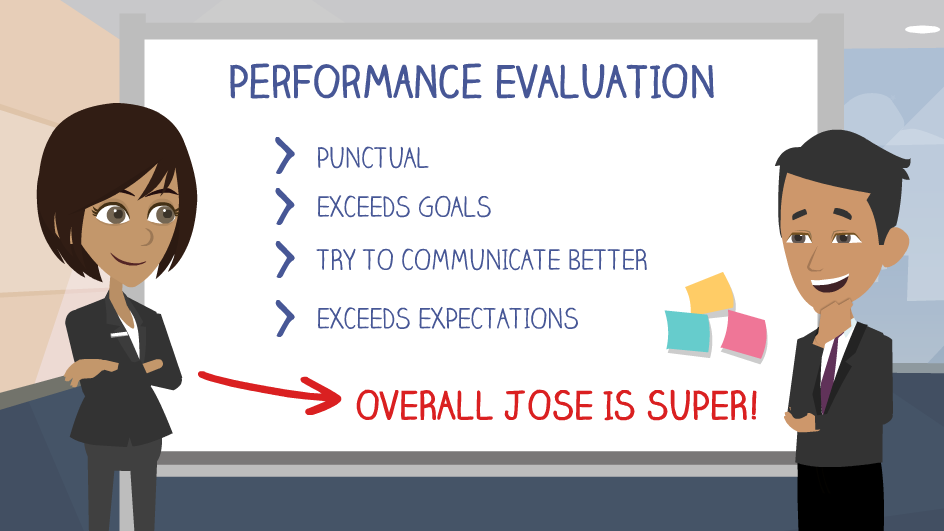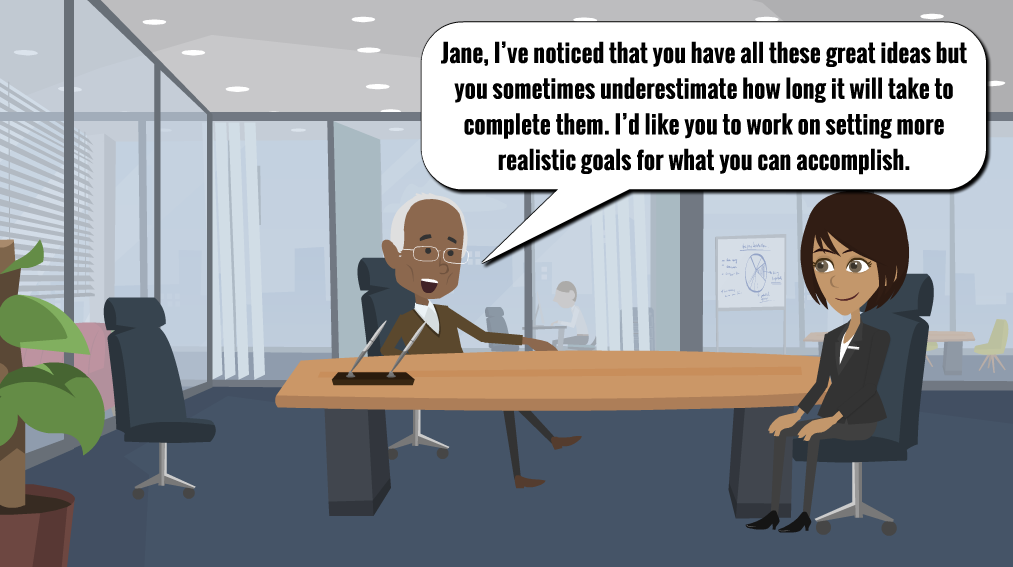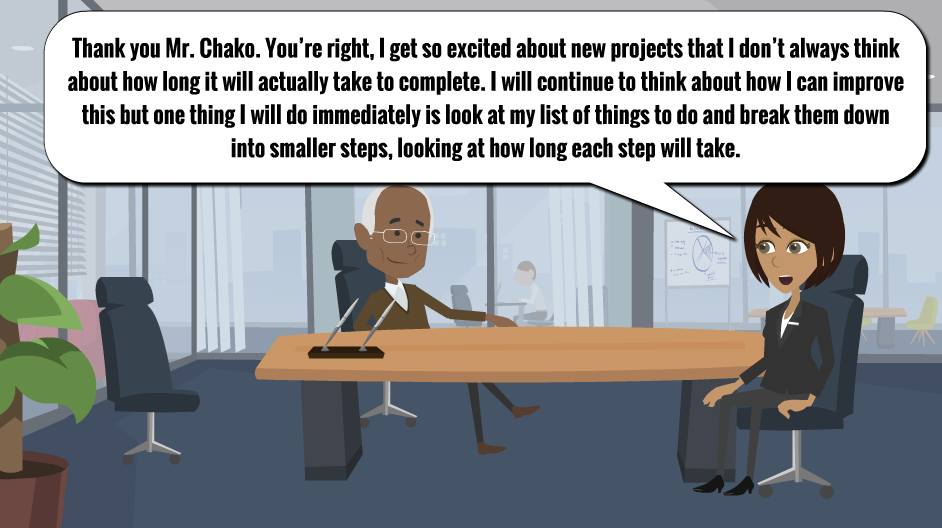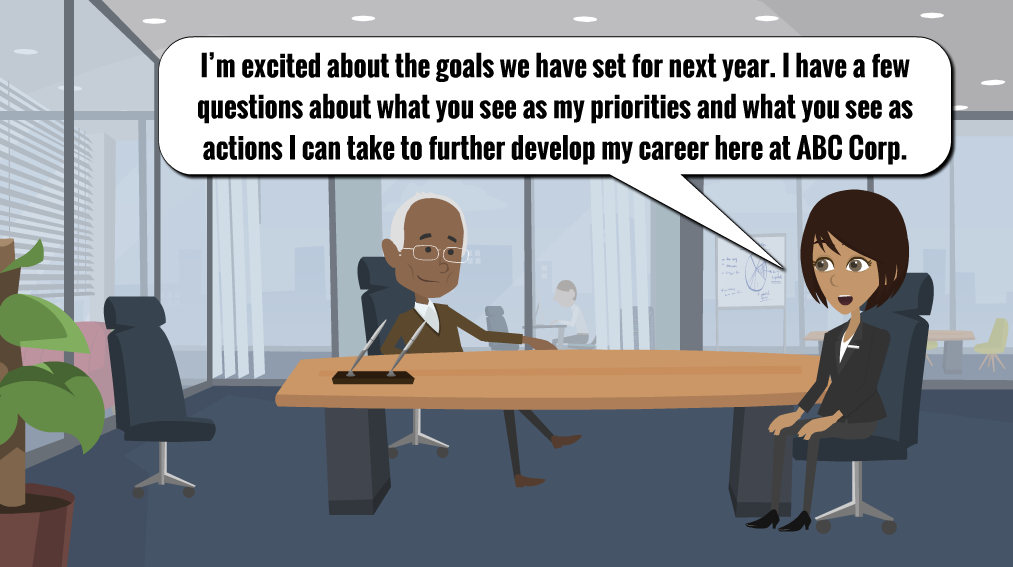Module 04: On the Job Success
4.9 What to Expect from Your Performance Evaluation

After a few months of working at a new organization, your employer may sit you down with you for a performance evaluation (sometimes called a performance review or performance appraisal). A performance evaluation is a review and discussion of your performance of assigned duties and responsibilities. This is the time when your manager will bring up any concerns or problems that they have with your performance or behaviour in the workplace. This is also an excellent opportunity for you to address any challenges that you’ve been facing. Your manager will also likely help you develop a work plan for the next six months to a year.
Here are some tips to help you prepare for your performance evaluation:
- Make a list of your accomplishments and challenges: Your manager is going to want to see examples of your strengths and challenges. If you take the time to identify them ahead of time, you’ll be better able to communicate the value of your contribution.

- Be formal: Your manager may be treating the meeting casually, but it isn’t. Your performance evaluation becomes a part of your file in human resources and it’s reviewed whenever managers are considering promotions and pay raises. Treat your performance evaluation as you would any important meeting with your manager.

- Be open to feedback: Your manager is going to give you both positive and negative feedback on your performance. Although criticism can be difficult to hear, you need to hear it to get better. It’s important that you’re open to feedback and that you make an effort to learn from it.


- Be proactive: Don’t just sit there quietly through your performance evaluation. Actively engage in the process. Tell them about your accomplishments and show your enthusiasm when setting your goals for the upcoming year. This is also an opportunity to ask questions and express your concerns.

- Take action: Your performance evaluation doesn’t end when the meeting does. Take the feedback that you received and make an effort to improve upon any weaknesses that were identified. Going forward, make it a habit to ask your manager for feedback whenever appropriate. Also, keep a copy of your work plan handy and review it on a regular basis to make sure you stay on track.

Your Performance Evaluation is also a good time to review your goals:
- Which goals were met/exceeded/not met?
- How does this relate to your future work goals?
- What goals should be set for the next year or work period?
Many employees become nervous when they learn that they’ll be having a performance evaluation. However, if you’re properly prepared, it can be a positive experience that helps you grow professionally.

